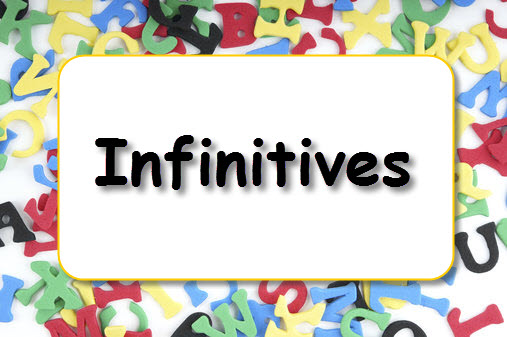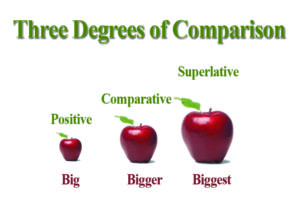Động từ Nguyên mẫu trong tiếng Anh – Infinitive Verb
Bạn có biết sự khác biệt giữa một động từ nguyên mẫu và một động từ cơ sở? Hoặc, bạn có biết khi nào và làm thế nào để bạn sử dụng động từ nguyên mẫu? Những câu hỏi này, và câu trả lời của họ là chìa khóa để hiểu cách sử dụng của một động từ nguyên mẫu.
1. Xác định một động từ Nguyên mẫu:
Về cơ bản, một động từ nguyên mẫu là một động từ có từ “to” ở trước nó.
- to be
- to have
- to hold
- to sleep
- to dream
Khi bạn sử dụng một động từ nguyên mẫu, “đến” là một phần của động từ. Nó không hoạt động như một giới từ trong trường hợp này. Và động từ luôn chỉ là động từ. Dù sao nó cũng không được kết hợp – không-không, không-không, cuối-không. Đôi khi bạn sẽ thấy những câu như thế này:
- She went from kissing him to slapping him in no time.
Bạn thấy “slap” (tát), và thật dễ dàng để nghĩ rằng đó là một động từ nguyên bản, nhưng không phải vậy. Đó là giới từ (to) và gerund (tát). Bạn có thể nói nó không phải là một từ nguyên mẫu bởi vì -ing ở cuối động từ. Infinitives không bao giờ có một kết thúc -ing.
2. Động từ Nguyên mẫu so với Động từ Cơ sở (Base verb)
Rất nhiều người nghĩ rằng động từ nguyên mẫu là hình thức cơ bản nhất của động từ, nhưng thực tế không phải vậy. Hình thức cơ bản nhất là hình thức cơ sở. Hình thức cơ bản chỉ là động từ, không có “đến”. Một số người cũng gọi đây là một nguyên bản.
- be
- have
- hold
- sleep
- dream
3. Sử dụng động từ nguyên mẫu
Có một số cách có thể để sử dụng động từ nguyên mẫu. Bạn có thể sử dụng chúng:
- như chủ đề của câu – To err is human; to forgive, divine..
- như một tính từ hoặc cụm trạng từ thể hiện mục đích hoặc mục đích – My instructions are to press this button every hour.
- theo dõi một đối tượng gián tiếp – He told me to give this to you.
- sau một số động từ khác:
- afford – We can’t afford to eat out every night.
- agree – Let’s agree to disagree.
- aim – I aim to please.
- appear – She appears to have the chicken pox.
- arrange – I’ll arrange to meet you at 3:00.
- attempt – We attempted to contact him several times.
- determined – They are determined to finish the race.
- beg – She begged to stay up past her bed time.
- care – Would you care to dance?
- choose – He’ll always choose to eat pizza if given the choice.
- claim – They claim to have been home all night.
- dare – Do you dare to approach me?
- decide – We decided to get married in a hot air balloon.
- demand – I demand to know who said that!
- deserve – You deserve to have all you want in life.
- expect – Do you expect to see her any time soon?
- fail – She failed to achieve any of her goals.
- happen – I happen to have all the things you need.
- help – It would help to be able to swim.
- hesitate – He hesitated to ask for the day off.
- hope – She hopes to be engaged by the end of the summer.
- learn – We’re learning to communicate better.
- long – Oh how he longed to hold her in his arms!
- manage – Have you managed to complete your work on time for once?
- mean – I didn’t mean to hurt you.
- need – You need to think before you speak.
- neglect – He neglected to tell his parents about the accident.
- offer – Jim offered to help me pack.
- plan – What do you plan to do after college?
- prepare – I’m preparing to run away.
- pretend – Don’t pretend to sleep when I’m talking to you.
- proceed – We then proceeded to drink until we blacked out.
- promise – I promise to love you forever.
- refuse – She refused to sign the documents.
- resolve – He has resolved never to fight again.
- seem – They seem to be having some sort of argument.
- stop – We stopped to use the restroom and stretch.
- swear – Do you swear to tell the truth, the whole truth, and nothing but the truth?
- tend – I tend to laugh when I’m nervous.
- threaten – He threatened to shoot me if I didn’t give him my wallet.
- use – She gave MacGeyver her cigarettes and an earring, which he used to make a bomb.
- volunteer – They volunteered to paint kids’ faces at the fair.
- vow – We vowed to love and cherish one another.
- want – Do you really want to hurt me?
- wish – Do you wish to see me cry?
- would hate – I would hate to be in his shoes.
- would like – The gentleman would like to accompany the lady home.
- would love – I would love to dance!
- would prefer – He would prefer to go bowling, but she wants to see a movie.
Như bạn có thể thấy, động từ nguyên mẫu có nhiều cách sử dụng, cả chức năng (We need to leave now) và triết học (To be, or not to be? Đó là câu hỏi).




